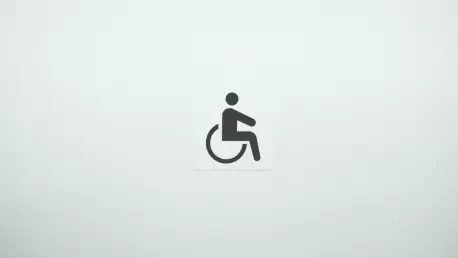What if the answer to the hotel industry’s persistent staffing crisis lies in a group often ignored by traditional hiring practices? Picture a bustling hotel lobby, where every role—from housekeeping to guest services—is filled with dedicated employees, yet the industry still struggles with a shortage of nearly 200,000 workers. Amid this challenge, a powerful solution emerges: hiring individuals with intellectual and developmental disabilities. This untapped workforce not only fills critical gaps but also transforms workplace culture in ways that benefit everyone involved. Let’s dive into how this approach is reshaping hospitality for the better.
Unlocking a Hidden Gem in Hospitality Staffing
The hospitality sector has long grappled with labor shortages, but a reservoir of potential remains largely untapped. Individuals with intellectual and developmental disabilities represent a workforce eager to contribute, often bringing a level of commitment that counters the industry’s notorious turnover rates. Their inclusion offers hotels a chance to stabilize operations while addressing a societal need for meaningful employment opportunities.
This shift isn’t just about filling positions; it’s about redefining what a strong team looks like. Hotels that have explored this path report not only operational improvements but also a renewed sense of purpose among staff. By focusing on ability rather than limitation, the industry can uncover hidden strengths that enhance service delivery and guest experiences in unexpected ways.
Why Inclusion Is a Game-Changer for Hotels
With turnover costing hotels thousands in training and recruitment each year, the need for innovative staffing solutions has never been more urgent. Data from the American Hotel & Lodging Association reveals a persistent labor gap of about 200,000 jobs, a figure that underscores the industry’s struggle to keep pace with demand. At the same time, societal pressure for diversity and inclusion is mounting, pushing businesses to align with values that resonate with guests and stakeholders.
Hiring individuals with disabilities directly tackles these dual challenges. Beyond addressing immediate staffing needs, this practice positions hotels as leaders in social responsibility, enhancing brand reputation among a growing demographic of socially conscious travelers. It’s a strategic move that merges practical necessity with ethical progress, making inclusion a cornerstone of modern hospitality.
The Tangible Rewards of a Diverse Workforce
The benefits of integrating individuals with intellectual and developmental disabilities into hotel teams are clear and measurable. Studies from Penn State University’s School of Hospitality Management show that these employees often exhibit exceptional loyalty, significantly reducing turnover—a major expense for hotels. Their dedication to roles like laundry services or dining room support helps maintain operational consistency.
Moreover, their presence enriches workplace diversity, fostering a more inclusive environment that strengthens team morale. Hotels adopting this approach often find that staff cohesion improves, creating a ripple effect of positivity. Additionally, guests and partners take notice, rewarding such initiatives with heightened trust and loyalty, as evidenced by businesses that have seen brand perception soar through inclusive hiring.
Insights from the Front Lines of Hospitality
Experts emphasize that success in this arena requires more than good intentions; it demands structured support. Phillip Jolly, a researcher at Penn State, notes, “Thoughtful adjustments in communication and task design, paired with strong support systems, elevate the entire workplace.” This perspective is backed by findings from comprehensive studies advocating for tailored training and job coaches to bridge gaps in understanding.
Real-world examples bring these insights to life. Certain hotels have reported remarkable outcomes, such as employees with disabilities thriving in structured roles while inspiring their peers to embrace collaboration. These stories highlight that with the right framework, potential transforms into performance, benefiting both the individual and the organization in profound ways.
Practical Strategies for Building an Inclusive Hotel Environment
For hotels ready to take this step, actionable measures are key to ensuring success. Partnering with local organizations can streamline recruitment, while government incentives help offset initial costs. Designing roles with clear routines—think housekeeping or kitchen assistance—provides stability and empowers employees to excel with confidence.
Investing in job coaches is another critical component, as they offer on-the-job guidance and facilitate communication between staff and supervisors. Equally important is fostering a culture of inclusion through team-building activities and training managers to provide consistent support. These efforts create a workplace where everyone feels valued, driving morale and operational efficiency to new heights.
Reflecting on a Path Forward for Hospitality
Looking back, the journey toward inclusion in the hotel industry revealed both challenges and triumphs. It became evident that addressing labor shortages was only part of the equation; the deeper impact lay in building a workforce that mirrored the diversity of the guests served. The stories of dedication and growth among employees with intellectual and developmental disabilities stood as proof of what was possible with the right support.
Moving ahead, hotels are encouraged to commit to structured programs that prioritize tailored training and meaningful roles. Collaborating with community partners and leveraging available resources can pave the way for sustainable change. This isn’t just about solving a staffing crisis—it’s about reimagining hospitality as a space where every individual has a chance to contribute and thrive.









